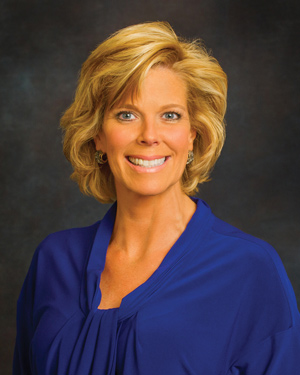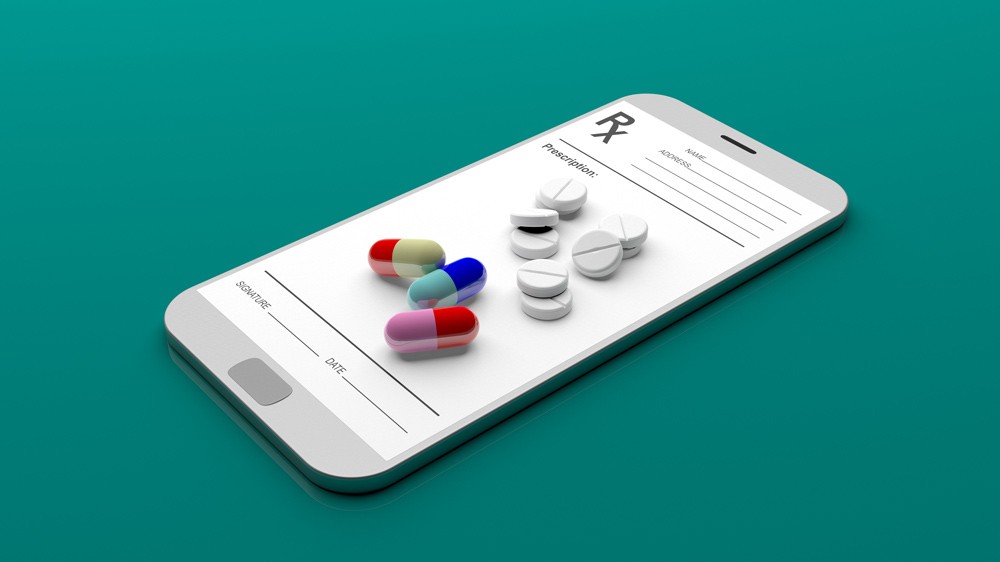While hospital workers are on the frontlines fighting the COVID-19 pandemic, PhRMA (Pharmaceutical Research and Manufacturers Association) is leading the pharma industry’s effort in navigating the crisis.
A Washington, D.C.-based trade association comprising 35 biopharmaceutical companies, PhRMA is a conduit of sorts for news about how the industry is coping.

“Pharma meetings, international and nationally, have taken a huge hit because everything’s virtual,” said Sharon Lamberton, deputy vice president of state policy for PhRMA. “The associations can’t do their normal conferences, which is a huge revenue generator. Zoom only goes so far.”
Lamberton said that many of the association members of PhRMA are offering educational content—critical for health professionals to keep up their certifications—and collaboration via online channels. Patient group conferencing has also been accomplished via platforms such as Zoom.
“We’re very concerned about how we can get our information and treatments out to patients without our normal meetings,” Lamberton said. “That means that we have to pick up the phone and talk and do the Zoom meetings no one likes anymore.”
Besides representing the interests of its members, Lamberton estimates she has personally delivered some 150 talks during the pandemic, and said PhRMA is very receptive to being a resource to help pharma/medical meeting planners develop and deliver relevant content for their audiences.
[Related: Medical Meetings Face New Challenges in the New Year]
“Our industry is extremely interested in helping the meeting planning business,” Lamberton said. “We can provide expert speakers, such as big-picture [speakers] or specialists. It’s doing that old-fashioned connection—pick up the phone and tell me what you need. We need to really rely on each other, especially in these times.”
One benefit presented by the pandemic is that expert speakers—and speakers in general—are less expensive and have increased availability because air travel is not required to deliver a presentation to an in-person audience.
“The benefit is we’re able to get some top-notch speakers because they’re doing it with their PJs on and don’t have to travel to Tokyo or New York,” she said. “We haven’t seen these people being able to command high attendance, but it’s good that we’re able to draw higher-level talent to participate.”
Lamberton said the buzz around the industry is that in-person meetings will begin to gather steam again starting in the third quarter of 2021. She is also guardedly optimistic about the progress of the various vaccines that are being distributed. About half of PhRMA’s members are involved in producing COVID-19 vaccinations, she estimates.
“It looks like there will be two additional Phase 3 candidate vaccines in the next months for FDA review and emergency use authorization,” Lamberton said. “Phase 3 is in the pipeline, and that’s the last phase that needs to be completed for clinical trials.”
Pharma Meetings Go Virtual
Bishop-McCann, an experiential branding agency that produces meetings, events and incentive programs worldwide, includes a business unit that specializes in small pharmaceutical industry meetings.
That effort is led by Dave Eckberg, head of Pharmaceutical & Franchise Client Groups. Eckberg said the bulk of his group’s work for the pharma industry currently involves Zoom meetings for smaller groups such as advisory boards. Most of the meetings max out at approximately 15 participants, who often are physicians.

Eckberg said harnessing Zoom-like platforms’ ability to create breakout rooms is key to effective participant engagement, and that Bishop-McCann has discovered some additional benefits while navigating the now-ubiquitous world of virtual meetings.
Always a very heavily regulated meetings industry segment because of oversight by the Physicians Payments Sunshine Act, passed by Congress in 2010 to create transparency and battle perceptions of payola of health care providers from health care corporations such as pharmaceutical companies, little has changed in this aspect of pharma and medical meetings, pandemic or no.
“One of the things we’ve found is that it’s critical to gather all of their information during registration. You wouldn’t think that’s so critical with small groups, but when it comes down to the final reporting that needs to be done, we really need that information,” Eckberg said. “Also, honorariums and gathering tax info; on behalf of our pharmaceutical clients we can make those payments with them, which is an enhancement to our core services that we’ve been focused on during this time.”
Gifting Options in a Virtual World
Honorariums, gifts and the reimbursement of travel and accommodations expenses have always been an element of pharma and medical meetings. The Sunshine Act at its most basic seeks to create transparency and firm reporting requirements of any gift or payment to healthcare professional meeting participants.
The pandemic has resulted in much simpler reporting requirements, as travel and onsite meals have been rendered a non-issue.
“Mostly what we were reporting for HPC [health professions conference] meetings were food and beverage, rooms and transportation,” Eckberg said. “Now it’s more just honorariums, really. There’s no travel components anymore—it’s over Zoom, so no hotel rooms, food, all of that.”
While the Sunshine Act is notoriously labyrinthine, with different regulations depending on the country or U.S. state where the meeting is being held, Bishop-McCann in late 2020 pivoted to launch a new company, Eventure, to deliver customized gifts and even food to online meeting participants.
“We’re doing gift boxes and engagement boxes that get sent out ahead of time with instructions on what to open when,” Eckberg said. “While we were providing breakfast before, now we’re offering a breakfast bar and breakfast drink. We’re finding ways to engage them through their tactile senses—such as taste and touch—with phased box openings, to create some sort of surprise and delight.”
Eckberg said that Eventure can customize the gifting to reflect a specific region, and also places an emphasis on using Black- and locally owned vendors since it launched.
Prognosis for Recovery
Like PhRMA’s Lamberton, Eckberg is optimistic that the pharma meetings segment will start showing signs of recovery in the second half of 2021.
“We are all very optimistic,” he said. “We have brought a good portion of our company projections back—we’re looking to be about 75% of previous years. I think quarter one and quarter two are going to continue to be challenging until people get vaccinated. We feel like [quarters] three and four feel more promising. But that said, I think there will always be hybrid and virtual—people may not feel comfortable traveling for a year, but that’s a worst-case scenario.
“We sometimes plan a year out, so we’re going to be busy even before some of the hotels and venues, so we’re optimistic about that,” Eckberg continued. “One of the things we’ve encouraged our clients to do is even if they’re not ready to commit to [quarter] three or four, let’s get a proposal together and see what’s available and negotiate a really good clause in our contracts for a good out. I think when it comes back it will come back with a fury, and availability will be limited, and that’s going to be difficult for clients to understand.”
Download Our Free eHandbook: The New Normal






